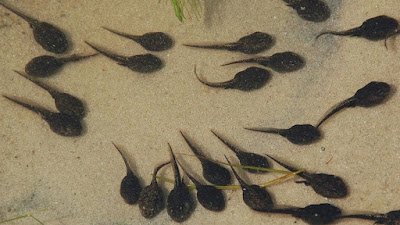Came across an essay by Mary Gaitskill, "The Deracination of Literature," Unherd (June 17, 2022).
In 2019, she discussed the novelist John Updike with students. One of his novels "was hard for students to read partly because he was sexist and backward in his racial attitudes, but even more because he described his worlds very, very densely. He would spend pages describing what a character sees driving down a country road at night. Students had a hard time even tracking it — they could, but they had to try."
This session of Gaitskill's class was attended by the writer Joyce Carol Oates, who had been Updike's peer. Oates told the students, as Gaitskill recalled and paraphrased: "yes, John could describe anything and everything but no one wants to read that any more, because (directly quoting) “people have moved on." Gaitskill is still processing the remark. "We’ve moved on from the world we live in? How is that possible?"
"Perhaps — let’s face it, probably — literature has moved on. We don’t look at the physical world as we once did, and so we don’t write about it as we once did. And that is just one way it is being taken for granted and abused to the point of destruction.
That may sound rhetorical, but it isn’t. It is remarkable to me, based on the sample of humans that I’ve had in writing classes, both “kids” and adults, how many people: 1) express great concern about climate change and its effects on the planet, 2) are completely uninterested in other humans’ visions of what the planet they want to save looks, feels and sounds like, and 3) are even less interested in writing or just noticing what it looks like to them. Even as a writing exercise it’s hard for them to say, for example, what someone’s face looks like in a fundamental way. Which is not to say that they can’t do it. Some of them do it very well once they try. But it doesn’t occur to them in the way I think it naturally occurred to people of my generation."
Then again, some people are thinking all the time about nature. August 1 is the release date for Real Sugar is Hard to Find, Sim Kern's speculative fiction about the future in climate crisis. Stories like these are something you may want to check out to see different ways of conceptualizing human-life-in-nature.
Cli-fi?
"I don’t think your novel needs to be set on a melting polar ice cap to be a climate novel. In the future, every novel written today might be read as a climate novel—because we’re writing in the midst of a catastrophe, whether we overtly talk about it or not. Inevitably, the way we construct characters will be affected by it, I don’t think we need a new 'genre' of climate fiction; on the contrary, the point is that all contemporary fiction reflecting on the human condition now necessarily occupies this territory."
— Elvia Wilk, in The Climate of Feeling: A Conversation with Elvia Wilk. By Sruti Islam. The Rumpus. December 27, 2019.
A musing:
"It is not nature itself which is evil but abandonment and desuetude, which make for places where human beings still are, but are no longer able to live."
— Dominic Fox. "Killing Spree!" In Serial Killing: A Philosophical Anthology. Edia Connole and Gary J. Shipley, eds. Schism, 2015. p. 220.



No comments:
Post a Comment